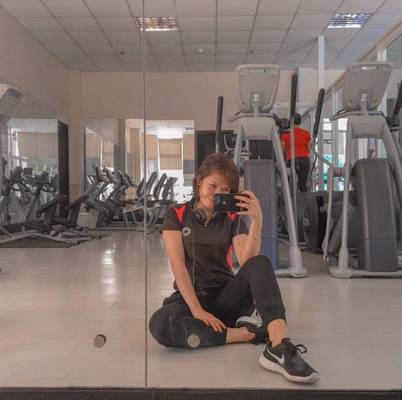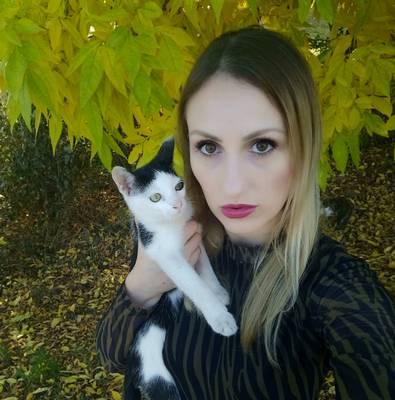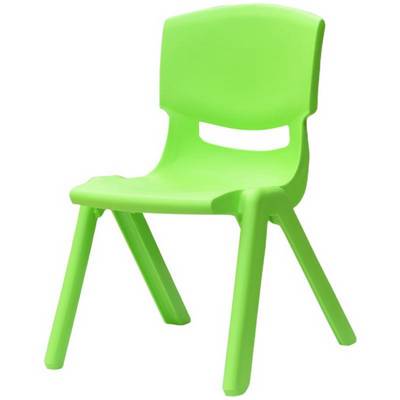- A+
 13:09
13:09
Hi, I'm Katie.
嗨,我是凯蒂。
Welcome to Oxford Online English!
欢迎来到牛津大学在线英语课程!
Learning English takes a lot of time and work.
学习英语需要大量的时间和努力。
Do you agree?
你同意吗?
If so, what can you say?
如果是这样的话,你能说什么呢?
Actually, you could use very simple language.
其实你可以使用非常简单的语言。
You could just say 'yes', or even say nothing, and just nod your head!
你可以说“是的”,甚至什么也不说,点点头就行了!
You could say 'I agree'.
你可以说“我同意”。
But, did you know that there are many other phrases you can use to show how much or how little you agree?
但是,你是否知道还有许多其他短语可以用来表明你同意呢?
This video is part of our 'Level Up' series, where you can learn a wide range of language to level up your everyday conversational English.
这个视频是我们“提升”系列的一部分,你可以在本节课程中学习很多语言来提高你的日常会话英语的水平。
Check out the other videos in this series on YouTube or our website.
去我们的 YouTube 或者是网站来看一下其他的视频吧。
Also, don't forget to turn on the subtitles for this video if you need them!
还有,如果需要的话,请不要忘记打开这个视频的字幕!
All our videos have English subtitles.
我们所有的视频都有英文字幕。
You can turn them on now: just click the 'CC' button in the bottom right of the video player.
你可以立即将它们打开:只需点击视频播放器右下方的“CC”按钮即可。
So, let's get going!
所以让我们开始吧!
I loved Amanda's casserole tonight.
我喜欢阿曼达今晚做的炖锅菜。
It was so good!
太好吃了!
I know, right!
我知道,对吧!
It was so good.
太好吃了。
I was completely full, and I still couldn't stop eating.
我已经完全吃饱了,但我仍然无法停止继续吃。
I think she should make it for the potluck next month.
我觉得下个月的百味餐她可以做一个。
It'll be a favourite, for sure!
肯定很受大家喜欢的!
I'm with you on that one.
我同意你。
Everyone will love it!
大家肯定都很喜欢的!
I'll send her a text to tell her how much we liked it.
我会给她发个短信,告诉她我们有多喜欢它。
Notice that here neither person used the word 'agree', yet it's clear that they do agree.
请注意,没有人使用“agree”这个词,但很显然他们都是同意的。
You can say 'I know' or 'I know, right?' to express agreement.
你可以说“我知道”或“我知道,对吧?” 表达同意。
Tone is important here; you need to sound enthusiastic when using this phrase.
语调在这里很重要;使用这个短语时,你需要听起来很热情。
If you say 'I know, right', then it doesn't work.
如果你说“我知道,是吧”,那么其实并不行。
But, with correct intonation: 'I know, right?' it works.
但是,如果语调正确的话:“我知道,对吧?”,就可以了。
You heard one more phrase to express agreement here.
你在这里听到了表示同意的另一句话。
Do you remember?
你还记得吗?
You heard 'I'm with you on that one.' 'I'm with you' is another way to say 'I agree with you.' It's slightly more conversational; you probably wouldn't use it in writing, and definitely not in formal writing.
你听到了“我同意你所说的”。“我同意你所说的”是说“我同意你”的另一种方式。它比较对话性;你可能不会以书面形式使用它,而且绝对不能在正式的写作中使用它。
Goodness, it's windy today!
天哪,今天风好大啊!
You're telling me!
没错!
I almost lost my hat this afternoon.
今天下午我差点把帽子给弄丢了。
Come on, we'd better go inside and warm up.
快点,我们最好进去取取暖。
Great minds think alike!
英雄所见略同!
I could sure do with a hot cup of tea right now.
我现在绝对要喝杯喝茶。
Here's a phrase you heard, but there's a mistake… Can you remember the correct phrase?
这是你听到的一个短语,但是有一个错误……你还记得正确的短语是什么吗?
It was: 'you're telling me!' This shows that you completely agree.
就是:“没错!”这表明你完全同意。
But that's not the only form of agreement that popped up in that conversation.
但这并不是对话中出现的唯一一个表达同意的形式。
Did you hear the other one?
你听到了另一个吗?
You heard: 'great minds think alike'.
你听到了:“英雄所见略同”。
Consider this for a moment.
考虑一下这个。
What do you think it means?
你觉得这个是什么意思?
Well, in the literal sense it means 'we're both really clever' but it's just a humorous way to say that you've both reached the same conclusion.
好的,从字面意义上来看,意思是“我们俩都非常聪明”,但这只是一种幽默的方式来说你们两个都得出了相同的结论。
It's a light-hearted saying, so you can try it out with your friends.
这个是很轻松的表达,所以你可以和朋友一起尝试一下。
I can't believe Sue cut her hair so short!
我不敢相信苏会剪这么短的头发!
Yes! I was thinking the same thing!
是的!我也在想同样的事情!
It's weird seeing her without long hair.
看到她没有长发真是奇怪。
It's a big change.
这是一个很大的变化。
You can say that again!
你说的没错。
I get a shock every time I see her.
每次见到她我都会很震惊。
I must say though, she pulls off the look.
不过我得说,她整个人都焕然一新了。
What do you think?
你怎么看?
Without a doubt.
毫无疑问。
The first phrase you heard here was 'I was thinking the same thing.' There are other variations on this, like 'I was thinking the same' or 'I had the same thought.' Did you also notice the phrase 'you can say that again'?
你在这里听到的第一个短语是“我在想同样的事情”。还有其他的变体,例如“我也这么想”或“我在也这么觉得”。你是否也注意到了“ you can say that again”这个短语?
Does it really 
mean you want the person to repeat what they've just said?
它的意思是不是你希望对方重复他们刚才说的话?
Of course not.
当然不是。
You don't really want the other person to repeat the words; it's just an informal way to say that you totally agree.
你并不是希望别人重复自己说的话;这是说你完全同意的一种非正式的表达方式。
Similarly, 'without a doubt' expresses complete agreement.
同样地,“毫无疑问”表示完全同意。
You can also say 'no doubt', which has a similar idea.
你也可以说“毫无疑问”,意思是一样的。
But what if there is a doubt in your mind?
但是,如果你有疑问的话,该怎么办呢?
What if the argument is factually correct…but you don't particularly like it?
如果这个说法在事实上是正确的……
What to say then?
但你并不是特别喜欢呢?那该怎么说呢?
I don't think you should take that mountain trip this weekend.
我认为你这个周末不应该参加山地旅行。
The weather 
forecast is predicting heavy snow.
天气预报预测有大雪。
You could get stuck up there.
你可能会被困在那里。
I've been looking forward to it for weeks!
我已经期待了好几个星期!
But, I guess you're right… I know, it's a shame.
但是,我想你是对的……我知道,这太可惜了。
But it's really too dangerous.
但这真的太危险了。
The roads get too slippery and visibility's a problem.
道路太滑,能见度也是个问题。
I'm really disappointed.
我真的很失望。
It would've been so nice to get away.
如果能休息一下该有多好啊。
Well, there's always next month.
好吧,下个月还是会有的。
I suppose so.
我猜是这样。
The family will be so disappointed.
一家人肯定会很失望的。
Could you tell from that conversation that I agreed with Rich but also expressed my 
disappointment?
你能否从对话中感觉出来我同意里奇,但也表达了我的失望?
You can use 'I guess you're right' and 'I suppose so' when you agree that someone is right, but you're not happy with the situation.
当你同意某人是正确的,但你对这个情况并不满意的时候,你可以使用“我猜你是对的”和“我想是的”。
You can use short versions of these, too: 'I suppose' and 'I guess'.
你也可以使用它们的简短版本:“我猜”和“我猜”。
Can you think of such an example from your own life?
你能从自己的生活中想到这样的例子吗?
Maybe it's time to replace those worn tyres on your car?
也许是时候更换汽车上那些旧轮胎了吧?
Or to start by exercise routine that you've been talking about for months?
还是要开始你这几个月来一直在谈论的健身计划?
Maybe it's 
time to make that phone call that you promised you would but you really don't want to?
也许是时候拨打你答应但是并不是真的想打的电话了吧?
If someone suggests you do these things, you might say 'I suppose so'.
如果有人建议你做这些事情,你可能会说'我想是这样的'。
This shows that you accept the point, but you're not excited about it.
这表明你接受了这一点,但对此并没什么很兴奋的感觉。
Hey, should we go see that new action movie tonight?
嘿,今晚我们要不要去看那部新的动作片?
Good idea!
好主意!
We haven't been to the movies in a while.
我们已经有一段时间没看电影了。
Do you think we should invite Leanne and Luke to come along?
你认为我们应该邀请利安娜和卢克一起来吗?
I think they'll enjoy it.
我想他们会喜欢的。
Sure, I don't see why not.
当然,我非常同意。
It's on at six and eight.
是在六点和八点。
Shall we do the eight o' clock one?
我们要看八点的那场吗?
Fine by me!
我没意见!
Just a reminder: most of the ways you're learning in this lesson to agree don't use the word 'agree' at all!
提醒一下:本节课中你学习的大多数表达同意的方式都根本不使用“同意”这个词!
Here, you heard 'good idea'.
刚才你听到了“好主意”。
In a discussion, you can say 'good point' to agree with what someone says.
在讨论的时候,你可以说“好主意”来同意某人的观点。
If someone makes a suggestion, you can agree using the phrase 'I don't see why not' or 'fine by me'.
如果有人提出建议,你可以用“我不明白为什么不这样做”或“我同意”的说法来表达你的赞同。
These are neutral phrases, which don't express much enthusiasm.
这些是中性的短语,不会表示出对此的热情。
That doesn't mean that you're unenthusiastic or unhappy, just that you're accepting someone else's idea without expressing much emotion one way or the other.
这并不意味着你不热情或不开心,而是你只是在接受某人的想法,但是没有表达什么感情色彩。
Will you go to Dan's party with me this weekend?
这个周末你要和我一起去参加丹的聚会吗?
Absolutely! Dan always throws the best parties in town.
一定要去!丹举办的派对总是我们这里最好的。
Exactly! He's a great host, too.
就是!他也是很棒的主人。
For sure!
当然了!
He really knows how to entertain.
他真的很会玩乐。
Here, you heard three short ways to agree enthusiastically.
在这里,你听到了三种简短又充满激情地表达同意的方式。
Can you remember all three?
你还记得是哪三个吗?
You heard 'absolutely!', 'exactly!' and 'for sure!' These are good, simple ways to show that you agree one hundred per cent with what you've heard.
你听到了“当然了!”,“绝对是!” 和“当然!”这些都是很好的、非常简单的方法来表明你百分百地同意你听到的内容。
I think AI will take over most jobs in the future, and teachers will be the first to go.
我认为,人工智能将在未来接管大部分工作,而老师会是第一个被替代的。
What do you think? Mmm… I agree with you up to a point; I do think AI will cause job losses, but I don't think teachers will be replaced any time soon.
你怎么看?嗯……我在一定程度上同意你的观点。我确实认为人工智能会导致失业,但我不认为教师会那么快被替代。
Why do you say that?
你为什么那么说?
I just think other jobs are easier to automate.
我只是认为其他工作更容易实现自动化。
Teaching's all about human contact.
教学是关于人与人之间的接触交流的。
You've got a point there… Maybe teaching as a profession is safe, but surely some aspects of it will be taken over by technology.
你说的也有道理……也许作为一种职业来说,教学是安全的,但可以肯定的是,它的某些方面将被科技所取代。
Here, the speakers partly agreed with each other.
在这里,发言者部分同意另一个人的看法。
This is common: sometimes, you may agree with some of what's being said but not all of it.
这是很常见的:有时,你可能会同意别人所讲的一些内容,但并非全部。
A good phrase to express this is 'I agree with you up to a point'.
表达这一点的一个很好的短语是“我在一定程度上同意你的观点”。
You could also use 'you've got a point there but …' This is a good way to acknowledge the other person's point of view while also showing that your perspective is at least slightly different.
你也可以使用:“你说的也有道理,但是……”这是认同他人观点的一种很好的方法,同时也表明你的观点略有不同。
This is a useful tactic for business and negotiations: you try to find common ground first and then address the points of disagreement.
这是商务和谈判的有用策略:你尝试先找到共同点,然后再解决分歧点。
Talking of business, which of the phrases you've learned so far are more appropriate in formal settings, say with a colleague or a client?
说到商务,你到目前为止学到的短语中哪些在正式场合更合适呢,比如说和同事或客户说?
What about 'Great minds think alike?' or 'you're telling me'?
“英雄所见略同”怎么样?或者是“你说的没错”?
Well, like many things it depends on the context and the tone.
好吧,就像许多事情一样,它取决于上下文和语调。
In general, netural phrases like 'I agree with you', 'I'm in agreement' or just 'agreed' will likely be better in a business meeting.
通常,在商务会议中,诸如“我同意你”、“我同意”或“同意”之类的口语表达可能会更好。
Phrases such as 'for sure' and 'you can say that again' are better for social situations.
“当然了”和“你说得对”等短语更适合社交场合。
Let's look at some more informal ways to agree as these words and phrases will make you sound natural in your speech.
让我们看看一些更加非正式的表达,因为这些单词和短语会让你说的话听起来更加自然。
Hey! Are we still going to the beach this weekend?
嘿!这个周末我们还要去海滩吗?
You betcha!
当然了!
It's going to be so much fun!
肯定会很有意思的!
I'm packing extra sunscreen as I don't want to make the same mistake as last year.
我要多涂一些防晒霜,因为我不想犯与去年相同的错误。
Ditto! My skin can't handle too much sun either.
同意!我的皮肤也受不了太多的阳光。
Oh, and bring a lot of fluids — you don't want to get dehydrated out there!
哦,还得多带点水——你肯定不想在那里晒脱水了!
Okey-dokey, I'll make sure to do that.
好的,我一定会的。
Do you think it would be OK to answer your boss with, 'You betcha?' Or, 'ditto?' Probably not — they're too casual, although of course it depends on your boss!
你觉得你可以用“当然了”或者是“你说得对”来回答老板吗?可能不行——它们太随意了,尽管这会取决于你的老板!
The phrases from the dialogue you just heard are very informal and should probably be avoided in a professional environment.
你刚才在对话中听到的短语是非常不正式的,在职业环境中应该避免使用。
"You betcha" is a slangy way to agree.
“You betcha” 是一种表示同意的俚语说法。
'Betcha' is a variant of the word 'bet' — you can also say 'you bet' with the same meaning.
“Betcha”是“bet”一词的变体,你也可以说“you bet”来表达相同的意思。
'Ditto' is another way to say, 'me too' or 'same here'.
“同上”是另一种说法来表达“我也是”或“我也是这样”的意思。
They are quick and natural responses in a casual conversation.
在随意的交谈中,它们可以迅速自然地进行回应。
And what about okey-dokey?
那 okey-dokey呢?
It's a light-hearted form of 'okay' or 'alright' that is used both in British- and American English.
这是一种轻松的来表达“okay”或“alright”的方式,在英式英语和美式英语中都使用。
However, keep in mind that this one is a little old fashioned.
但是,请记住,这个表达有点过时了。
So, now you've seen many different phrases to agree.
所以现在你已经看到了许多不同的短语。
Let's see what you can remember!
让我们来看看你能记住什么吧!
Try to complete some of the phrases from the lesson.
尝试完成本节课中的某些短语。
Pause the video and see if you can complete them all.
暂停视频,看看是否可以全部完成。
How did you do?
你做的怎么样?
Ready to see the answers?
准备好看答案了吗?
How did you do?
做得怎么样?
So, the next time you're having a conversation in English and you want to agree with someone, try using one of these phrases.
下次你进行英语对话,想表达同意某个人的时候,试着使用其中的一起短语。
I hope you enjoyed the class.
希望你喜欢本节课程。
Thanks for watching!
感谢收看!
See you next time!
下次再见啦!




